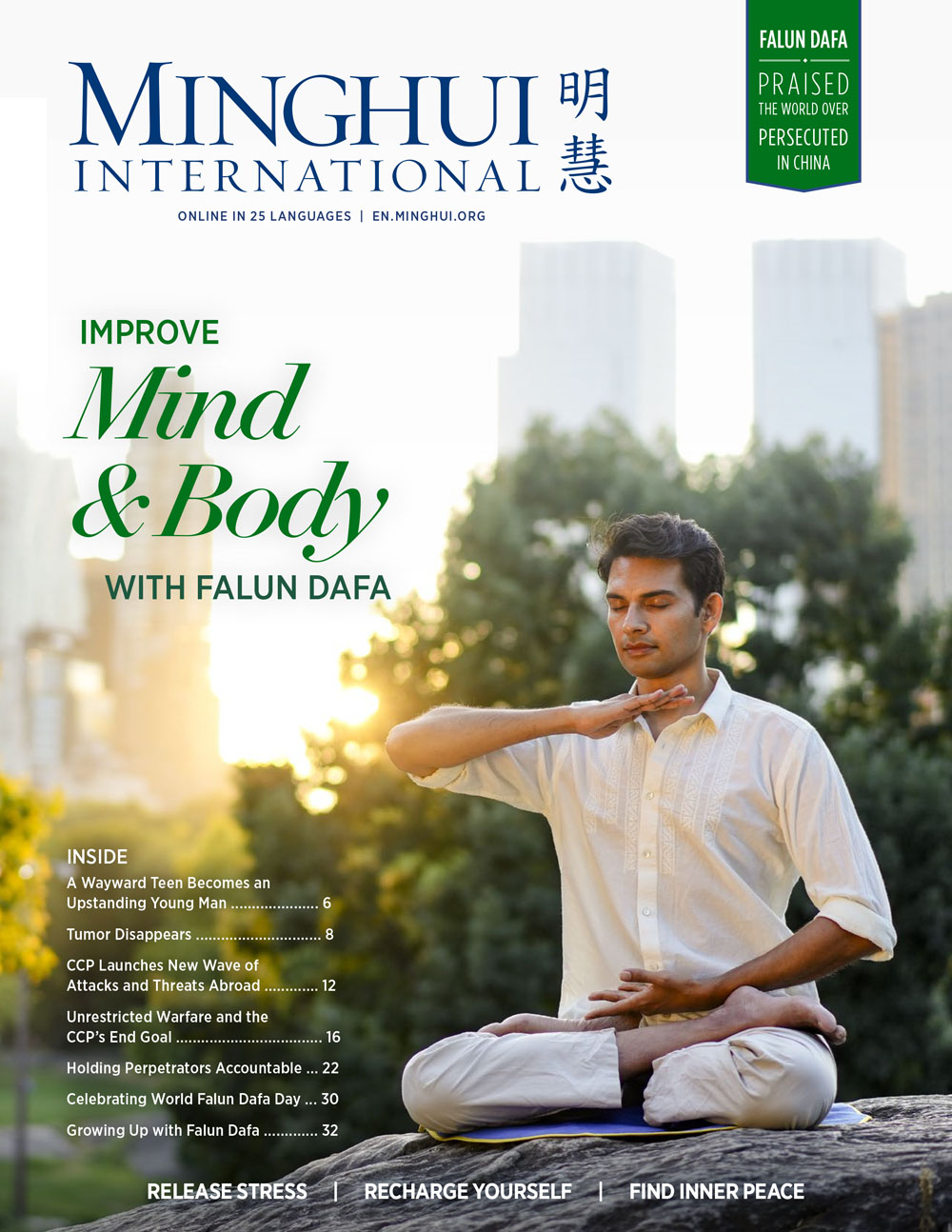(Minghui.org) Before I get into the topic of mind and matter being one, let me give two stories of how legendary doctors in ancient China healed their patients by healing their hearts.
Official’s Illness Cured After a Fit of Fury
Hua Tuo was a renowned doctor during the Eastern Han Dynasty. His knowledge of Chinese medicine was extensive and profound. He was especially famous for his surgical expertise, but he also gained legendary status for his skill in healing psychological and emotional ailments.
A county magistrate fell ill, and Hua Tuo determined that only an intense burst of anger could cure him. To provoke this, Hua Tuo repeatedly accepted the magistrate’s gifts and refused to treat him, eventually leaving without explanation and leaving behind a letter of harsh rebuke. Enraged, the magistrate sent someone to kill Hua Tuo, but his son intervened, understanding the doctor’s intention. The magistrate’s fury reached its peak, causing him to vomit a large amount of blood—after which his illness vanished.
A Good Laugh Cured a Scholar’s Depression
Another legendary physician, Zhu Danxi—also known as Zhu Zhenheng—was a highly respected figure during the Yuan Dynasty.
A scholar in Pujiang lost his wife soon after their marriage. Overcome with grief, he became severely depressed. The renowned doctor Dai Sigong treated him several times, but he showed no improvement. Dai then recommended that he travel to Yiwu to consult with Zhu.
While examining the scholar, Zhu felt his wrist pulse and exclaimed, “Ah, you are pregnant!” Instantly, the scholar burst into laughter.
Zhu continued, “It’s true, you are pregnant. Let me prescribe medicine to protect the fetus.” The scholar laughed even harder. After returning home, he told everyone he met, “Zhu Danxi, the legendary doctor in Yiwu, said that I am pregnant, ha ha!” He laughed every day. Within two weeks, his depression was gone—without any medicine at all.
The theory of Chinese medicine is rooted in the concepts of Yin and Yang, the Five Elements, and the energy channels, known as meridians, that circulate throughout the body. The Five Elements represent the five types of energy that exist in the microscopic levels of the universe – metal, wood, water, fire, and earth. These five ever-moving forces drive the rise and fall of all things, including the human body. Chinese medicine fundamentally seeks to regulate blood flow and organ function by targeting this invisible energy.
The seven emotions – anger, joy, apprehension, pining, grief, fear, and fright—are part of the universe’s energy system, each carrying the energy of one of the five elements. In Chinese medicine, these emotions are associated with the five elements and their corresponding internal organs as follows:
Anger-liver-woodJoy-heart-fireApprehension and grief-lung-metalPining-spleen-earthFear and fright-kidney-water
Returning to the case described earlier, the magistrate’s intense anger stimulated the liver’s wood energy to its peak. The powerful energy pushed up the stagnant blood—responsible for his illness— and expelled it from his mouth, resulting in his full recovery.
In the second case, the scholar’s beloved wife died soon after their marriage, which left him deeply grieved, sick, and depressed. Excessive pining caused the earth energy in his spleen to become stagnant. According to the principle of mutual generation and mutual inhibition of the five elements, fire energy in the heart generates earth energy in the spleen, so joy counteracts pining. The joyful energy in the heart gradually diminished the stagnant pining energy in the spleen, restoring balance and organ function. As a result, the scholar’s ailment was cured.
Master said,
“Throughout history, the issue of whether matter determines mind or vice versa has been constantly discussed and debated in the world of philosophy. In fact, let me tell everyone that matter and mind are one and the same.” (Lecture One, Zhuan Falun)
The seven emotions are known to belong to the spiritual realm. Nonetheless, they also carry the energy of the five elements. Hence, spirituality is energy, which is a form of matter.
Afterthoughts
Chinese medicine understands that most illnesses are caused by “six external factors and seven emotions.” In other words, the seven emotions not only heal illnesses but also cause them. The knowledge of ancient Chinese medicine is indeed encompassing and profound.
To practitioners of Western medicine, traditional Chinese medicine may seem inconceivable. Western approaches focus primarily on tangible organs, tissues, and cells, whereas traditional Chinese medicine addresses intangible elements that go beyond the physical body. Remedies in Chinese medicine operate according to subtle principles, adjusting the body at a microscopic level. As a result, illnesses treated with this approach are often less likely to recur.
Traditional Chinese medicine traditionally relies on four key diagnostic methods: observation, auscultation, questioning, and palpation. However, contemporary Chinese medicine often takes a different approach. Many doctors at prominent Chinese medicine hospitals now order numerous tests and analyses after only brief consultations with patients. While some physicians still diagnose by feeling patients’ pulses, many others forgo this practice, instead depending on Western medical knowledge to prescribe medications. Witnessing the shift away from traditional fundamentals toward Westernization is disheartening.
Copyright © 1999-2025 Minghui.org. All rights reserved.
Category: Traditional Culture








